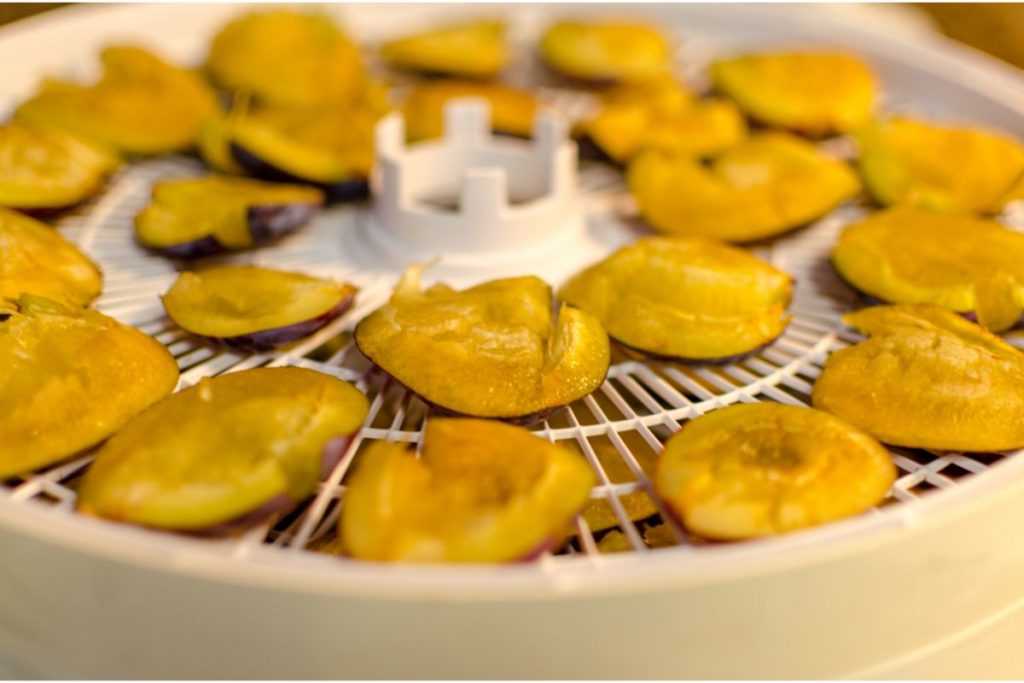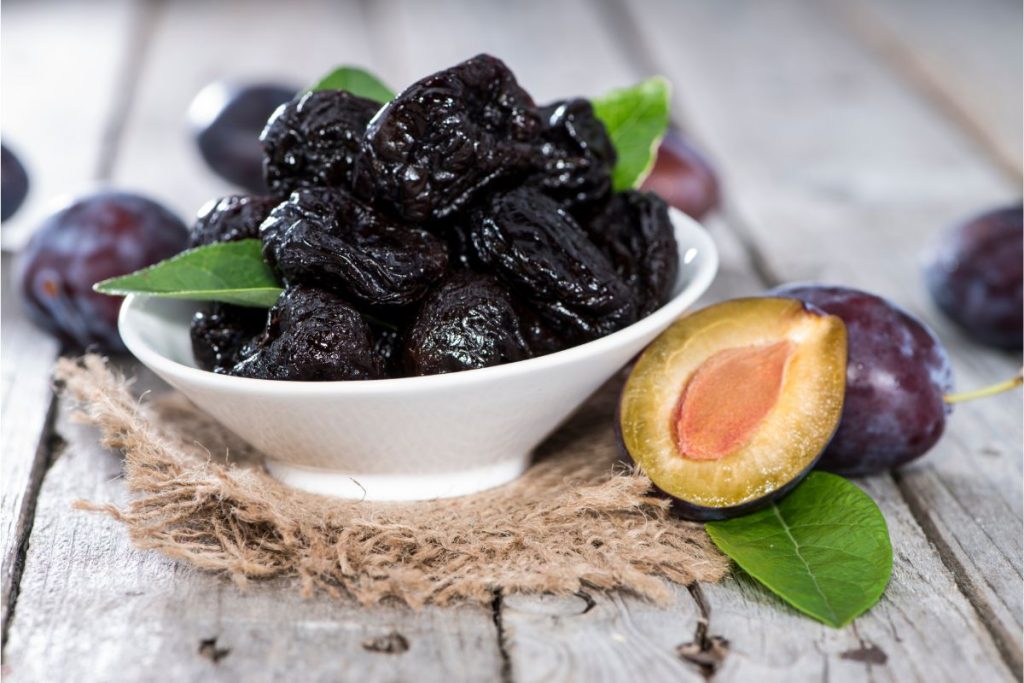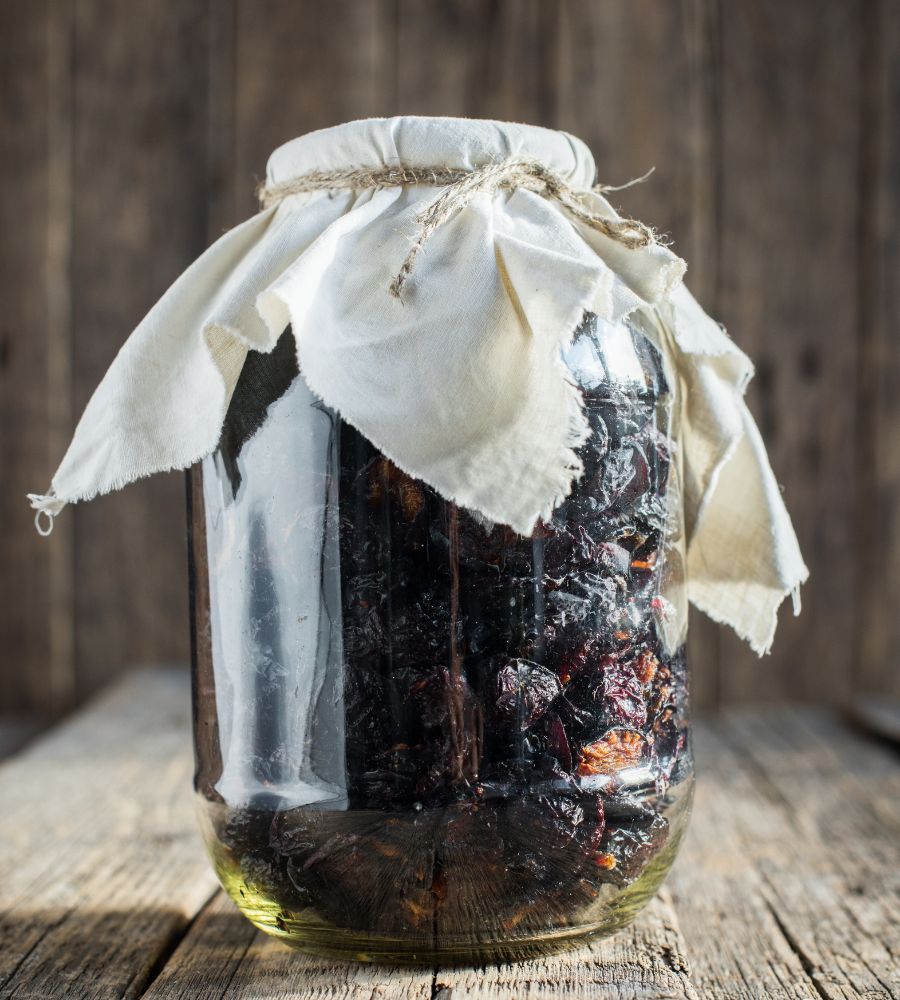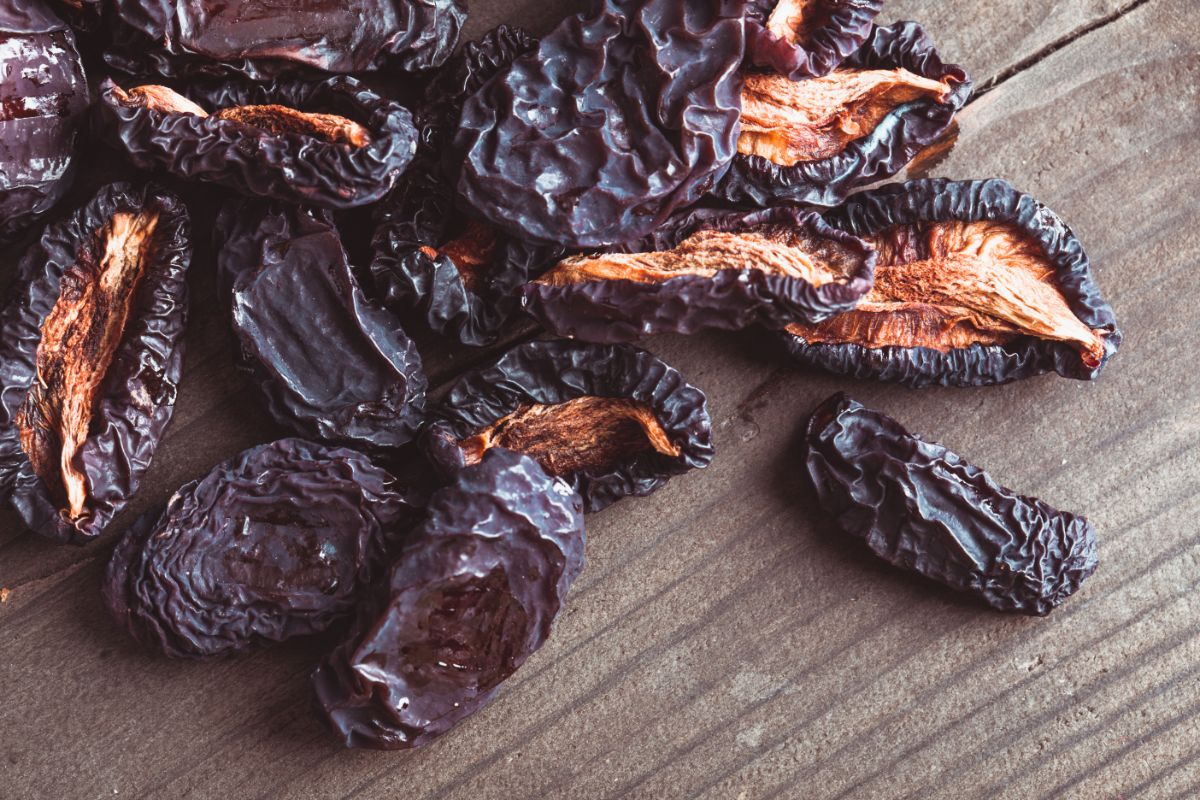To dehydrate plums in a food dehydrator, cut fresh plums into halves or quarters and arrange them in a single layer on dehydrator trays. Dry the plums at 135°F for 10-18 hours. Once dehydrated, store them at room temperature in airtight containers for six months.
Table of Contents
How to Dry Plums in a Food Dehydrator
Although dehydrating plums in the oven is faster, you can use a food dehydrator to reduce the risk of burning plums as they dry.
Here are the steps to follow to dry plums in a dehydrator:
- Choose fresh fruit for dehydration. Try freestone types of plums like Damsons and Italian plums. Ripe plums should be firm but give a little when pressed.
- Wash each plum under cool running water to remove any bloom residue. Use paper towels to dry the skin of each plum.
- Cut the whole plums in half using a sharp paring knife. Twist the cut plums slightly to separate them and remove the pit. Cut the plums into slices or quarters to reduce drying time if desired.
- Pretreat the plum halves or quarters in an ascorbic acid solution to retain their color and dry them faster. Soak for 3-5 minutes, then pat the pieces dry.
- Spread the plums on dehydrator trays in single layers, with the cut side facing up. Avoid overlapping and leave spaces between them for proper air circulation.
- Place the loaded trays in the dehydrator and dehydrate the plum slices at 135°F for 10-18 hours. The drying time will vary depending on the size of the plums and the humidity.
- Rotate the racks every 3-4 hours and check the drying plums after the 6th hour and every hour afterward. Flip the slices after 6 hours of drying to dry the skin side.
- Once the pieces are dry, remove a few from the dehydrator and let them cool to room temperature. Squeeze them to test for doneness. They should not produce moisture or stick to your fingers. Continue drying the plums until fully dehydrated.
- Remove the dried fruits from the dehydrator and cool them to room temperature. Condition them for 7 days in airtight containers, shaking each container daily and checking for stickiness and condensation.
- Re-dehydrate any dried plums that show evidence of moisture.
- Put fully dehydrated plums into airtight containers in a cool, dry, dark place for long-term storage.

Are Prunes Just Dehydrated Plums?
All prunes are dehydrated plums. These are usually made from specific varieties of plums.
The plums preferred for dehydration are called prune plums and are usually freestone types that come from European plum trees like Sutter and Damson. Japanese freestone plums like Elephant Heart and Black Ruby also make good prunes.
What are the Benefits of Dehydrating Plums?
- Dehydrated plums are easier to carry because of their smaller size and weight
- Dehydrating fruit is one of the best techniques for long-term food preservation
- Drying plums is cheaper than purchasing store-bought prunes
- Fresh plums occupy more storage space than dehydrated prunes
- Take advantage of buying plums on sale by buying in bulk

What is the Nutritional Content of a Dehydrated Plum?
According to Nutritionix, one dried plum contains 23 calories, 6.1 grams of carbohydrates, 0.7 grams of dietary fiber, and 0.2 grams of protein.
The primary function of these macronutrients is to provide the body with energy. Fiber supports the digestive system and reduces constipation, while protein helps the body make new cells. Dehydrated plums also contain vitamins A, C, and K, along with calcium, potassium, and magnesium.
How to Know When Plums are Fully Dry
Plums are fully dry when they reach a chewy, pliable, and leathery texture. Fully dried plums should not stick to your fingers or produce moisture when you squeeze them.
How Long Do Dehydrated Plums Last?
Unopened dried plums stored in airtight containers last six months at room temperature. Commercially dried prunes can be kept for 6-12 months or refrigerated to extend their shelf life by an additional 12 months.

What is the Best Way to Store Dehydrated Plums?
The best way to store dehydrated plums is to keep them in unopened airtight containers like Mason jars and vacuum seal bags at room temperature in a cool, dark, dry place. There is no need to store them in the fridge or freezer if they are unopened.
Once you open the container, refrigerate the prunes to preserve them for another six months or freeze them in freezer bags for up to 12 months.

